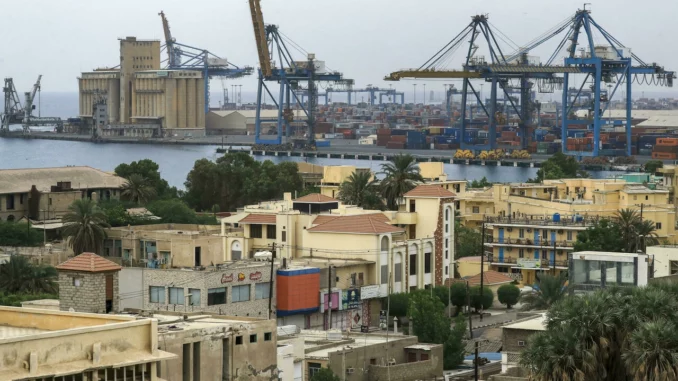
Everywhere, hundreds of trucks loaded with import-export goods or fuel to run factories and power plants are waiting in Port Sudan. For the past month, protesters have brutally cut off supplies to the whole of Sudan.
The protesters, who are cutting off roads to other provinces and especially to Khartoum, have blocked for a time the airport of Port Sudan and almost all the docks of Port Sudan.
Moustafa Abdelqader, a truck driver, is quite upset.
“I have been blocked for 24 days. I could have transported six loads and earned 120,000 Sudanese pounds”, or 235 euros, “whereas now, I have nothing to feed my family”, he says.
But for the demonstrators, giving in is out of the question. Since September 17, they have been demanding the cancellation of a peace agreement signed in October 2020 between Khartoum and rebel groups, which, according to them, does not give their region the representation it deserves in the transitional authorities.
In a country already squeezed by decades of recently lifted U.S. sanctions, these blockades are causing the loss of “$50 to $60 million a day,” says economist Mohamed al-Nayer.
For its part, the Union of Shipowners reports that in September only 27 ships were able to dock in Sudan, compared with 65 in August. Many of them were in fact diverted, notably to Egypt, to be able to unload their goods.
According to the dockers’ association, since 17 September, 13,000 employees are technically unemployed and therefore without income, as well as 20,000 others, indirect employees of the port economy.
This is a blow to the Sudanese economy, which is already on its knees and has been forced into austerity by the International Monetary Fund (IMF), which has forgiven its debt in exchange for the abolition of subsidies, particularly on fuel.
